 Catacombes de Paris, France. September, 2017.
Catacombes de Paris, France. September, 2017.
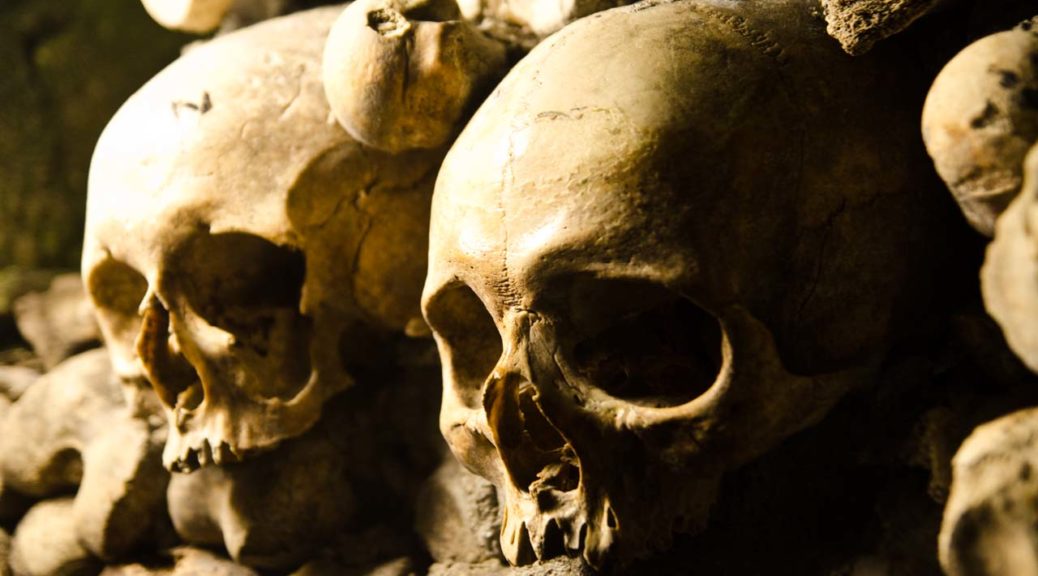

 Catacombes de Paris, France. September, 2017.
Catacombes de Paris, France. September, 2017.
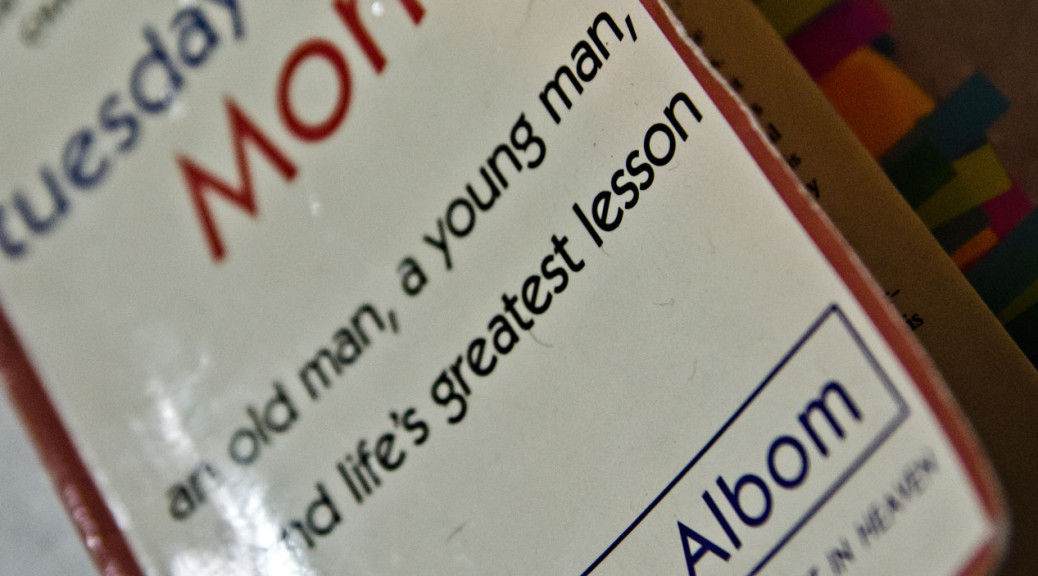
“My old professor, meanwhile, was stunned by the normalcy of the day around him. Shouldn’t the world stop? Don’t they know what has happened to me?
But the world did not stop, it took no notice at all,” p. 8
“Do I wither up and disappear, or do I make the best of my time left?” p. 10
Don’t assume that it’s too late to get involved.” p. 18
“I decided I’m going to live-or at least try to live-the way I want, with dignity, with courage, with humor, with composure.” p. 21
“There are some mornings when I cry and cry and mourn for myself. Some mornings, I’m so angry and bitter. But it doesn’t last too long. Then I get up and say, ‘I want to live…'” p. 21
“I had become too wrapped up in the siren song of my own life. I was busy.” p. 33
“And you have to be strong enough to say if the culture doesn’t work, don’t buy it. Create your own. Most people can’t do it. They’re more unhappy than me-even in my current position.” p. 35-36
“You take certain things for granted, even when you know you should never take anything for granted.” p. 40
“they gave up days and weeks of their lives, addicted to someone else’s drama.” p. 42
“He read books to find new ideas for his classes, visited with colleagues, kept up with old students, wrote letters to distant friends.” p. 42
“conversation, interaction, affection-and it filled his life like an overflowing soup bowl.” p. 43
“So many people walk around with a meaningless life. They seem half-asleep, even when they’re busy doing things they think are important. This is because they’re chasing the wrong things. The way you get meaning into your life is to devote yourself to loving others, devote yourself to your community around you, and devote yourself to creating something that gives you purpose and meaning.” p. 43
“The most important thing in life is to learn how to give out love, and to let it come in.” p. 52
“Why are we embarrassed by silence? What comfort do we find in all the noise?” p. 53
“I give myself a good cry if I need it. But then I concentrate on all the good things still in my life. On the people who are coming to see me. On the stories I’m going to hear.” p. 57
“the culture doesn’t encourage you to think about such things until you’re about to die. We’re so wrapped up with egotistical things, career, family, having enough money, meeting the mortgage, getting a new car, fixing the radiator when it breaks-we’re involved in trillions of little acts just to keep going. So we don;t get into the habit of standing back and looking at our lives and saying, Is this all? Is this all I want? Is something missing?” p. 64-65
“A teacher affects eternity; he can never tell where his influence stops.” Henry Adams. p. 79
*****”Everybody knows they’re doing to die… but nobody believes it. If we did, we would do things differently… To know you’re going to die, and to be prepared for it at any time. That’s better. That way you can actually be more involved in your life while you’re living… Do what the Buddhists do. Every day, have a little bird on your shoulder that asks, ‘Is today the day? Am I being the person I want to be?'” p. 81
“once your learn how to die, you learn how to live.” p. 82
“most of us all walk around as if we’re sleepwalking. We really don’t experience the world fully, because we’re half-asleep, doing things we automatically think we have to do.” p. 83
“if you really listen to that bird on your shoulder, if you accept that you can die at any time-then you might not be as ambitious as you are.” p. 83
“We are too involved in materialistic things, and they don’t satisfy us. The loving relationships we have, the universe around us, we take these things for granted.” p. 84
“If you don’t have the support and love and caring and concern that you get from a family, you don’t have much at all.” p. 91
“‘spiritual security’-knowing that your family will be there watching our for you. Nothing else will give you that. Not money. Not fame.” p. 92
“If you want the experience of having complete responsibility for another human being, and to learn how to love and bond in the deepest way, then you should have children.” p. 93
“I dove into work. I worked because I could control it. I worked because work was sensible and responsive.” p. 96
“Learn to detach.” p. 103
“But once he recognized the feel of those emotions, their texture, their moisture… the quick flash of heat that crosses your brain-then he was able to say, “Okay. This is fear. Step away from it. Step away.” p. 104-105
“There is a tribe in the North American Arctic, for example, who believe that all things on earth have a soul that exists in a miniature form of the body that holds it-so that a deer has a tiny deer inside it, and a man has a tiny man inside him. When the being dies, that tiny form lives on. It can slide into something being born nearby, or it can go to a temporary resting place in the sky, in the belly of a great feminine spirit, where it waits until the moon can send it back to earth.” p. 114
“Aging is not just decay, you know. It’s growth. It’s more than the negative that you’re going to die, it’s also the positive that you understand you’re going to die, and that you live better because of it.” p. 118
“All younger people should know something. If you’re always battling against getting older, you’re always going to be unhappy, because it will happen anyhow.” p. 118-119
“Remember what I said about detachment? Let it go. Tell yourself, ‘That’s envy. I’m going to separate from it now.’ And walk away.” p. 119
“The truth is, part of me is every age. I’m a three-year-old, I’m a five-year-old, I’m a thirty-seven-year old, I’m a fifty-year-old. I’ve been through all of them, and I know what it’s like. I delight in being a child when it’s appropriate to be a child. I delight in being a wise old man when it’s appropriate to be a wise old man.” p. 120
“Devote yourself to loving others, devote yourself to your community around you, and devote yourself to creating something that gives you purpose and meaning.” p. 127
****”if you’re trying to show off for people at the top, forget it. They will look down at you anyhow. And if you’re trying to show off for people at the bottom,forget it. They will only envy you. Status will get you nowhere.” p. 127
“Do the kinds of things that come from the heart. When you do, you won’t be dissatisfied, you won’t be envious, you won’t be longing for somebody else’s things. On the contrary, you’ll be overwhelmed with what comes back.” p. 128
“Each night, when I go to sleep, I die. And the next morning when I wake up, I am reborn.” Mahatma Ghandi p. 129
“When Morrie was with you, he was really with you. He looked you straight in the eye, and he listened as if you were the only person in the world.” p. 135
“I believe in being fully present… That means you should be with the person you’re with. When I’m talking to you now, Mitch, I try to keep focused only on what is going on between us. I am not thinking about something we said last week.” p. 135
“So many people with far smaller problems are so self-absorbed, their eyes glaze over if you speak for more than thirty seconds. They already have something else in mind” p. 136
“People haven’t found meaning in their lives, so they’re running all the time looking for it. They think the next car, the next house, the next job. Then they find those things are empty, too, and they keep running.” p. 136
“I don’t put have to be in that much of a hurry with my car. I would rather put my energies into people.” p. 137
“love and marriage: If you don’t respect the other person, you’re gonna have a lot of trouble. If you don’t know how to compromise, you’re gonna have a lot of trouble. If you can’t talk openly about what does on between you, you’re gonna have a lot of trouble. And if you don’t have a common set of values in life, you’re gonna have a lot of trouble. Your values must be alike.” p. 149
“People are only mean when they’re threatened… and that’s what our culture does.” p. 154
“The little things, I can obey. But the big things-how we think, what we value-those you must choose yourself. You can’t let anyone-or any society-determine those for you.” p. 155
“the biggest defect we human beings have is our shortsightedness.” p. 156
“Invest in the human family. Invest in people.” p. 157
“this disease is knocking at my spirit. But it will not get my spirit. It’ll get my body. It will not get my spirit.” p. 163
“There is no point in keeping vengeance or stubbornness… these things I so regret in my life. Pride. Vanity.” p. 164
“I mourn my dwindling time, but I cherish the chance it gives me to make things right.” p. 167
“Make peace with living.” p. 173
“Death ends a life, not a relationship.” p. 174
“how could he find perfection in such an average day.” p. 176
“There is no formula to relationships. They have to be negotiated in loving ways, with room for both parties, what they want and what they need, what they can do and what their life is like.” p. 177-178
“We’re all going to crash! All of us waves are going to be nothing! Isn’t it terrible?’
“The second wave says, ‘No, you don’t understand. You’re not a wave, you’re part of the ocean.” p. 179-180
“My father moved through theys of we,
singing each new leaf out of each tree
(and every child was sure that spring
danced when she heard my father sing)…”
“I want to tell him to be more open, to ignore the lure of advertised values, to pay attention when your loved ones are speaking, as if it were the last time you might hear them.” p. 192
“But if Professor Morris Schwartz taught me anything at all, it was this: there is no such thing as “too late” in life. He was changing until the day he said good-bye.” p. 190
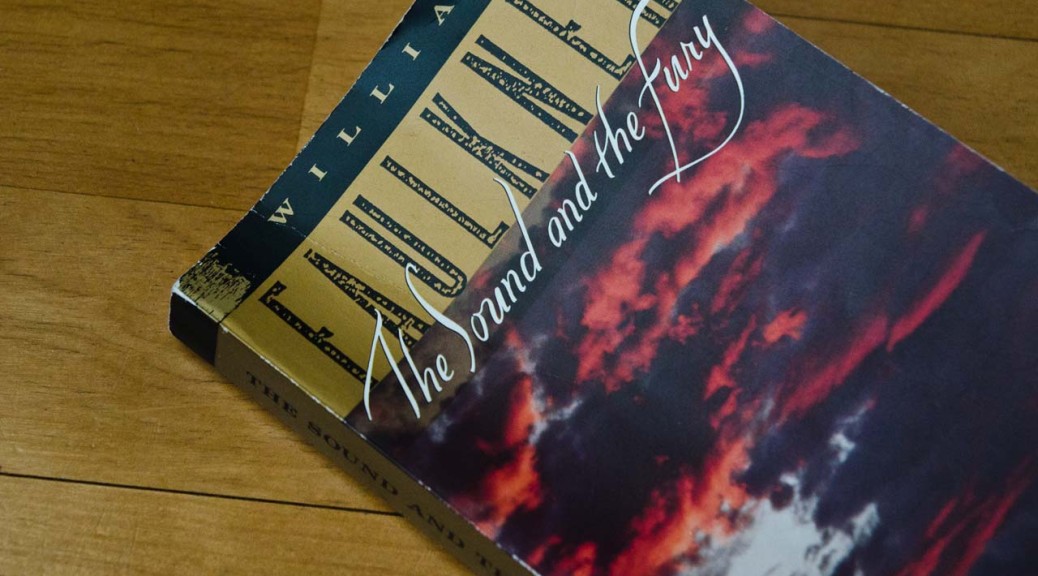
Luster “If you don’t hush, you know what I going to do. I going to eat that cake all up. Eat them candles, too. Eat all them thirty three candles. Come on, les go down to the branch. I got to find my quarter.” p. 4
“”Where’d you get a quarter, boy. Find it in white folks’ pocket while they aint looking.”
“Got it at the getting place.” Luster said. “Plenty more where that one come from. Only I got to find that one. Is you all found it yet.”
“I aint studying no quarter. I got my own business to tend to.”” p. 14
“The bones rounded out of the ditch, where the dark vines were in the black ditch, into the moonlight, like some of the shapes had stopped.” p. 33-34
“Caddy got the box and set it on the floor and opened it. It was full of stars. When I was still, they were still. When I moved, they glinted and sparkled. I hushed.” p. 41
Et ego in arcadia (Et in arcadia ego)p. 44
“And one evening, when they was about a dozen them bluegum chillen running around the place, he never come home. Possum hunters found him in the woods, et clean. And you know who et him. Them bluegum chillen did.” p. 69
“You’ve been running a long time, not to’ve got any further off than mealtime, Jason said.” p. 71
“Then he went to the window and looked out. He came back and took my arm. Here she come, he said. Be quiet, now. We went to the window and looked out. It came out of Quentin’s window and climbed across into the tree. We watched the tree shaking. The shaking went down the tree, then it came out and we watch it go away across the grass. Then we couldn’t see it.” p. 74
“I give it to you not that you may remember time, but that you might forget it now and then for a moment and not spend all your breath trying to conquer it. Because no battle is ever won he said. They are not even fought. The field only reveals to man his own folly and despair, and victory is an illusion of philosophers and fools.” p. 76
“I passed the jeweler’s window, but I looked away in time. At the corner two bootblacks caught me, one on either side, shrill and raucous, like blackbirds. I gave the cigar to one of them, and the other one a nickel. Then they let me alone. The one with the cigar was trying to sell it to the other for the nickel.” p. 83
“He was going bald. There was a glass in his eye–a metal tube screwed into his face. I went in.
The place was full of ticking, like crickets in September grass, and I could hear a big clock on the wall above his head. He looked up, his eye big and blurred and rushing beyong the glass.” p. 83
“There were about a dozen watches in the window, a dozen different hours and each with the same assertive and contradictiory assurance that mine had, without any hands at all. Contradiction one another.” p. 85
“And all that day, while the train wound through rushing gaps and along ledges where movement was only a laboring sound of the exhaust and groaning wheels and the eternal mountains stood fading into the thick sky,” p. 88
“The ship went through the bridge, moving under bare poles like a ghost in broad day, with three gulls hovering above the stern like toys on invisible wires.” p. 89-90
***”It twinkled and glinted, like breathing, the float slow like a breathing too, and debris half submerged, healing out to the sea and the caverns and the grottoes of the sea.” p. 90
“You can feel noon. I wonder if even miners in the bowels of the earth.” p. 104
“Father said that a man is the sum of his misfortunes. One day you’d think misfortune would get tired, but then time is your misfortune Father said.” p. 104
“I could still see the smoke stack. That’s where the water would be, healing out to the sea and the peaceful grottoes.” p. 112
“Only our country was not like this country. There was something about just walking through it. A kind of still and violent fecundity that satisfied even bread-hunger like. Flowing around you, not brooding and nursing every niggard stone.” p. 113
“The bridge was of gray stone, lichened, dappled with slow moisture where the fungus crept. Beneath it the water was clear and still in the shadow, whispering and clucking about the stone in fading swirls of spinning sky.” p. 115
“The arrow increased without motion, then in a quick swirl the trout lipped a fly beneath the surface with that sort of gigantic delicacy of an elephant picking up a peanut.” p. 116-117
***”Then they talked about what they would do with twenty-five dollars. They all talked at once, their voices insistent and contradictory and impatient, making of unreality a possibility, then a probability, then an incontrovertible fact, as people will when their desires become words.” p. 117
“He leaned on the rail, looking down at the trout which he had already spent, and suddenly the acrimony, the conflict, was gone from their voices, as if to them too it was as though he had captured the fish and bought his horse and wagon, they too partaking of that adult trait of being convinced of anything by an assumption of silent superiority.” p. 118
“The street turned again. I could see the white cupola, the round stupid assertion of the clock.” p. 124
“took up the coins and found two coppers in her apron and gave them to me. I handed them to the little girl. Her fingers closed about them, damp and hot, like worms.” p. 126-127
“She looked at me. She chewed quietly and steadily; at regular intervals a small distension passed smoothly down her throat. I opened my package and gave her one of the buns. “Good bye,” I said. p. 129
“Them furriners. I cant tell one from another. You might take her across the tracks where they live, and maybe somebody’ll claim her.” p. 130
“I don’t know
outside the gray light the shadows of things like dead
things in stagnant water” p. 157
“I went to the diningroom. Quentin was sitting with her head bent. She had painted her face again. Her nose looked like a porcelain insulator.” p. 257
“She had been a big woman once but now her skeleton rose, draped loosely in unpadded skin that tightened again upon a paunch almost dropsical, as though muscle and tissue had been courage or fortitude which the days or the years had consumed until only the indomitable skeleton was left rising like a ruin or a landmark above the somnolent and impervious guts, and above that the collapsed face that gave the impression of the bones themselves being outside the flesh, lifted into the driving day with an expression at once fatalistic and of a child’s astonished disappointment, until she turned and entered the house again and closed the door.” p. 265-266
“saw the old woman in her quilted dressing gown at the head of the stairs, calling her name with machinelike regularity.” p. 270
“It was not the bottle which Mrs Compson wanted, however, and clutching it by the neck like a dead hen Dilsey went to the foot of the stairs and looked upward.” p. 270
“She made no further move, but though she could not see her save as a blobby shape without depth, Mrs Compson knew that she had lowered her face a little and that she stood now like cows do in the rain, holding the empty water bottle by its neck.” p. 272
“The window was open. A pear tree grew there, close against the house. It was in bloom and the branches scraped and rasped against the house and the myriad air, driving in the window, brought into the room the forlon scent of the blossoms.” p.
“The Ben wailed again, hopeless and prolonged. It was nothing. Just sound. It might have been all time and injustice and sorrow become vocal for an instant by a conjunction of planets.” p. 288
“Two tears slid down her fallen cheeks, in and out of the myriad coruscations of immolation and abnegation and time.” p. 295
“But he bellowed slowly, abjectly, without tears; the grave hopeless sound of all voiceless misery under the sun.” p. 316
In Xanadu did Kubla Khan
A stately pleasure-dome decree :
Where Alph, the sacred river, ran
Through caverns measureless to man
Down to a sunless sea.
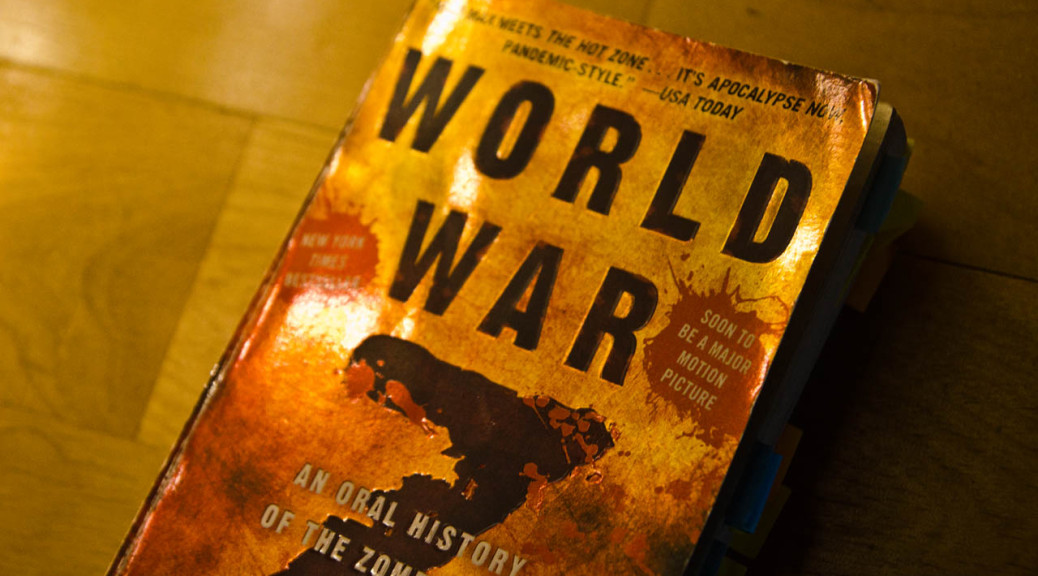
Fengdu (city of ghosts) 豐都鬼城
Old Dachang
Monasteries at Meteora, Greece
Sinai Desert at Taba
Falasha
Ship breaking at Alang, Gujarat, India
“Pakistan’s south central mountains: the Pab, the Kirthar, the Central Brahui range.” p. 113
List of mountain ranges of Pakistan
Henry J. Kaiser (father of modern American shipbuilding)
Vo Nguyen Giap (General in the Vietnam People’s Army)
Bosozoku 暴走族 Japanese motorbike subculture
Haya-ji Shinto wind god
Fujin Shinto wind god
Winston Churchill “Democracy is the worst form of government, except for all the others.”
The Ossuary and Port-Mahon Quarry
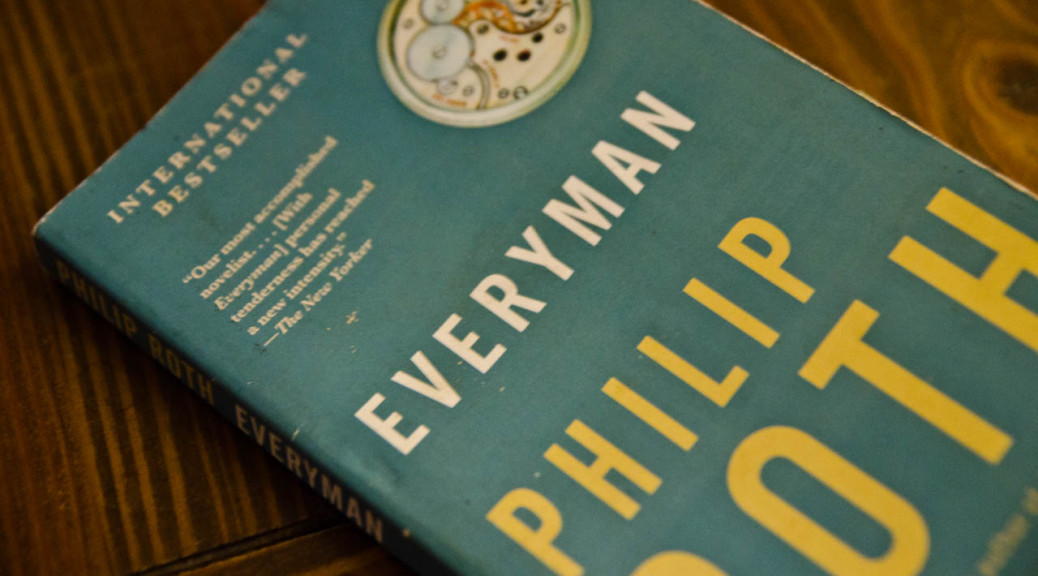
“Most days the water was clear and he didn’t worry that a drowned man would collide with his bare legs as he stepped out into the low surf. But when oil from torpedoed tankers clotted the sand and caked the bottom of his feet as he crossed the beach, he was terrified of stumbling upon a corpse. Or stumbling upon a saboteur, coming ashore to work for Hitler.” p. 25-26
“His father had read that the waters of New Jersey were “the worst ship graveyard” along the entire U.S. coastline,” p. 26
“The profusion of stars told him unambiguously that he was doomed to die, and the thunder of the sea only yards away–and the nightmare of the blackest blackness beneath the frenzy of the water–made him want to run from the menace of oblivion to their cozy, lighted, underfurnished house.” p. 30
“And convinced of his right, as an average human being, to be pardoned ultimately for whatever deprivations he may have inflicted upon his innocent children in order not to live deranged half the time.” p. 32
“Her father owned an avocado farm in Jamaica, and her mother kept a dream book in whose pages, each morning, she recorded her children’s dreams.” p. 47
“one small brick mausoleum, whose filigreed steel door and original two windows–which, at the time of the interment of its occupants, would have been colored with stained glass–had been sealed with concrete blocks to protect against further vandalism, so that now the little square building looked more like an abandoned tool-shed or an outdoor toilet no longer in operation that an eternal dwelling place in keeping with the renown, wealth, or status of those who’d constructed it to house their family dead.” p. 53
“There the dead man would remain for even more hours than he’d spent selling jewelry, and that was in itself no number to sneer at.” p. 55
“His father was going to lie not only in the coffin but under the weight of that dirt, and all at once he saw his father’s mouth as if there were no coffin, as if the dirt they were throwing into the frave was being deposited straight down on him, filling up his mouth, blinding his eyes, clogging his nostrils, and closing off his ears.” p. 59-60
“couldn’t stop the tears from running down her face: she wanted her father to be the way he was when she was ten and eleven and twelve and thirteen, without impediment or incapacity–and so did he.” p. 76
“He was amazed when he looked around himself and saw how bitterly disappointed parents could be–as he was with his own two sons, who continued to act as if what had happened to them never happened before or since to anyone else” p. 76
“All but two were older than he, and though they assembled each week in a mood of comradely good cheer, the conversation invariably turned to matters of sickness and health, their personal biographies having by this time become identical with their medical biographies and the swapping of medical date crowding out nearly everything else.” p. 80
“His third marriage had been founded on boundless desire for a woman he had no business with but desire that never lost its power to blind him and lead him, at fifty, to play a young man’s game.” p. 96
“Into their forties they remained with their father the children that they’d been back when he’d first left their mother, children who by their nature could not understand that there might be more than one explanation to human behavior” p. 97
“They elected to make the absent father suffer, and so he did, investing them with that power. Suffering his wrongdoing was all he could ever do to please them, to pay his bill, to indulge like the best of dads their maddening opposition.” p. 97
“He hated him because, though they were offspring of the same two parents and looked so very much alike, Howie had inherited the physical impregnability and he the coronary and vascular weaknesses. It was ridiculous to hate him, because there was nothing Howie could do about his good health other than to enjoy it.” p. 99
“But now he hated him and he envied him and he was poisonously jealous of him and, in his thoughts, all but rose up in rage against him because the force that Howie brought to bear on life had in no way been impeded.” p. 100
“and the cost was about as much as the entire inventory of the Elizabeth store, if not more, back when he was running one-hundred-dollar engagement rings of a quarter or a half carat to be sized for his father’s customers by a man working on a bench in a cubbyhole on Frelinghuysen Avenue circa 1942.” p. 116-117
“But lying–lying is cheap, contemptible control over the other person. It’s watching the other person acting on incomplete information–in other words, humiliating herself.” p. 121
“”The man loses the passion for the marriage and he cannot live without. The wife is pragmatic. The wife is realistic. Yes, passion is gone, she’s older and not what she was, but to her it’s enough to have the physical affection, just being there with him in the bed, she holding him, he holding her.” p. 122
“Altogether he was a little late in learning that all her boldness was encompassed in her eroticism and that her carrying everything erotic between them to the limit was their only overpowering affinity. He had replaced the most helpful wife imaginable with a wife who went to pieces under the slightest pressure. But in the immediate aftermath, marrying her had seemed the simplest way to cover up the crime.” p. 124
“My God, he thought, the man I once was! The life that surrounded me! The force that was mine! No “otherness” to be felt anywhere! Once upon a time I was a full human being.” p. 130
“Nancy, the twins, and himself–it had been a ridiculous idea to begin with, and unfair as well, an abdication of the pledge he’d made to himself after having moved to the shore, which was to insulate his all too responsive daughter from the fears and vulnerabilities of an aging man.” p. 138
“Her beauty, frail to begin with, was smashed and broken, and tall as she was, under the hospital sheets she looked shrunken and already on the way to decomposing.” p. 139
“Old age isn’t a battle; old age is a massacre.” p. 156
“He saw himself racing in every direction at once through downtown Elizabeth’s main intersection–the unsuccessful father, the envious brother, the duplicitous husband, the helpless son” p. 164-165
“At his father’s burial he had been informed by the rabbi that, if he was on his own, it would be wisest to visit his mother and father during the High Holy Day period, when the local police department, as the request of a committee of cemetery chairmen, had agreed to provide protection for the observant who turned out to recite the appropriate psalms and remember their dead.” p. 167
“But he was thinking in terms of days. He was musing like a marked man.” p. 168
“It’s because life’s most disturbing intensity is death.” p. 169
“Daylight, he thought, penetrating everywhere, day after summer day of that daylight blazing off a living sea, an optical treasure so vast and valuable that he could have been peering through the jeweler’s loupe engraved with his father’s initials at the perfect, priceless planet itself–at his home, the billion-, the trillion-, the quadrillion carat planet Earth!” p. 182
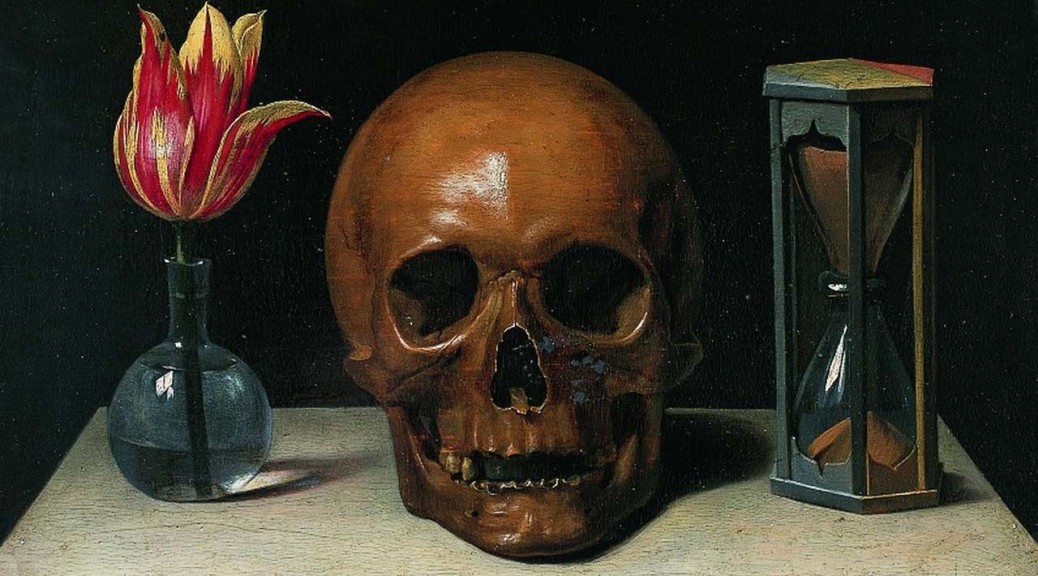
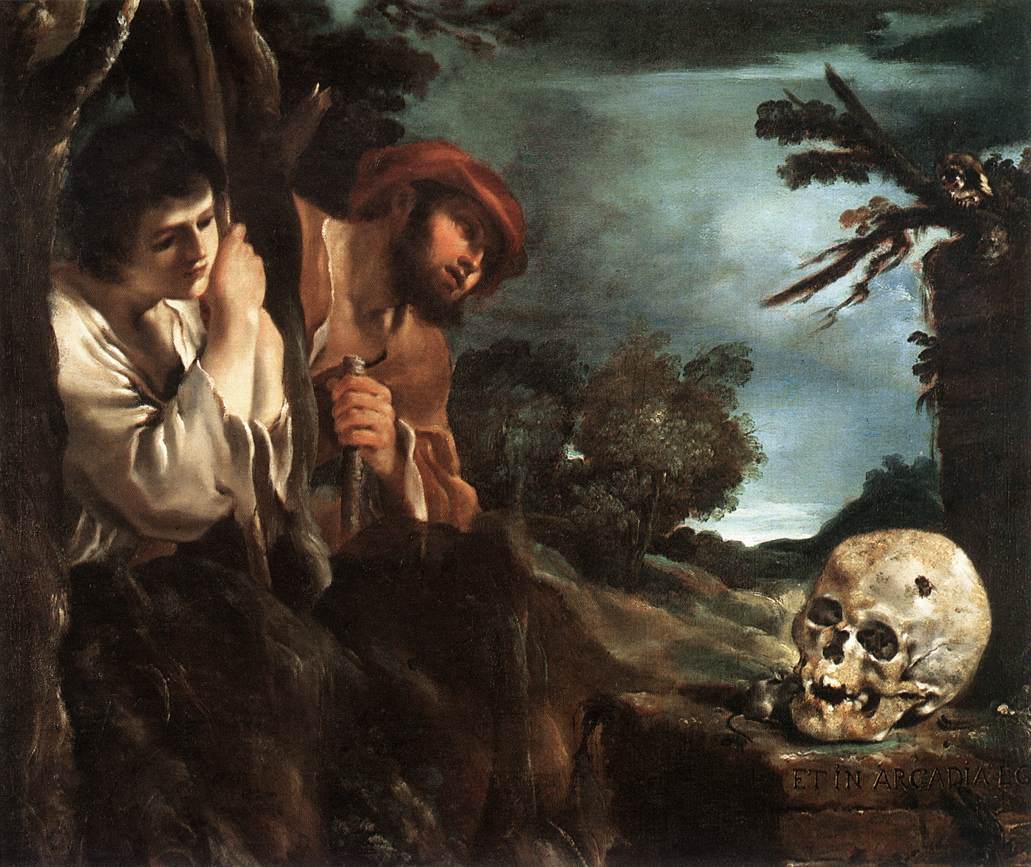
Et in Arcadia Ego. Guercino. 1618-22. Galleria Nazionale d’Arte Antica, Rome. Via wikimedia.
A memento mori at 3:38.
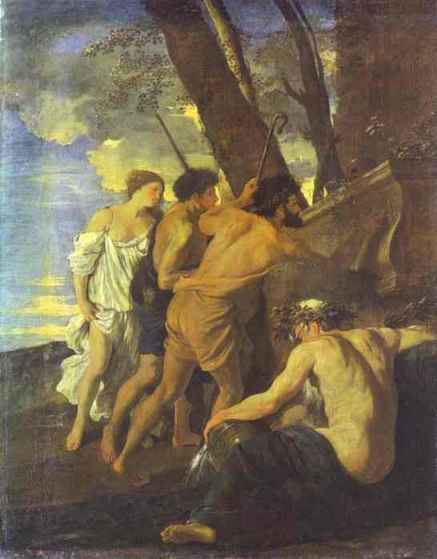
Nicholas Poussin, Et in Arcadia Ego, 1627. via wikipedia.
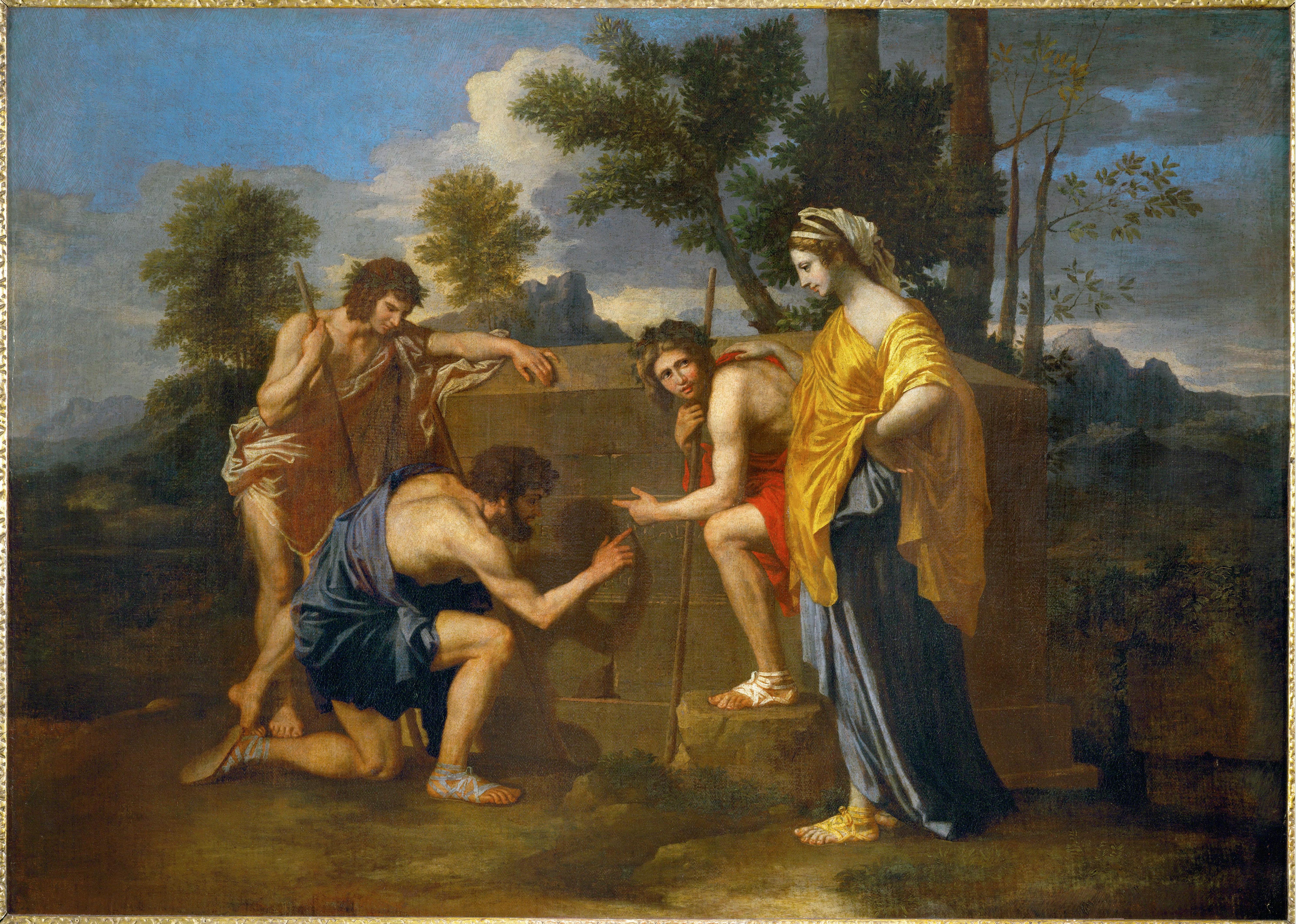
Nicolas Poussin. Et in Arcadia ego (1637-1638). Via wikimedia.
Interpretation of the phrase and paintings:
“The most important difference between the two versions is that in the latter version, one of the two shepherds recognizes the shadow of his companion on the tomb and circumscribes the silhouette with his finger. According to an ancient tradition (see Pliny the Elder, nat. Hist. XXXV 5, 15), this is the moment in which the art of painting is first discovered. Thus, the shepherd’s shadow is the first image in art history. But the shadow on the tomb is also a symbol of death (in the first version symbolized by a skull on the top of the tomb). The meaning of this highly intricate composition seems to be that, from prehistory onward, the discovery of art has been the creative response of humankind to the shocking discovery of mortality. Thus, death’s claim to rule even Arcadia is challenged by art […] In the face of death, art’s duty—indeed, her raison d’être—is to recall absent loved ones, console anxieties, evoke and reconcile conflicting emotions, surmount isolation, and facilitate the expression of the unutterable.” * Wikipedia.
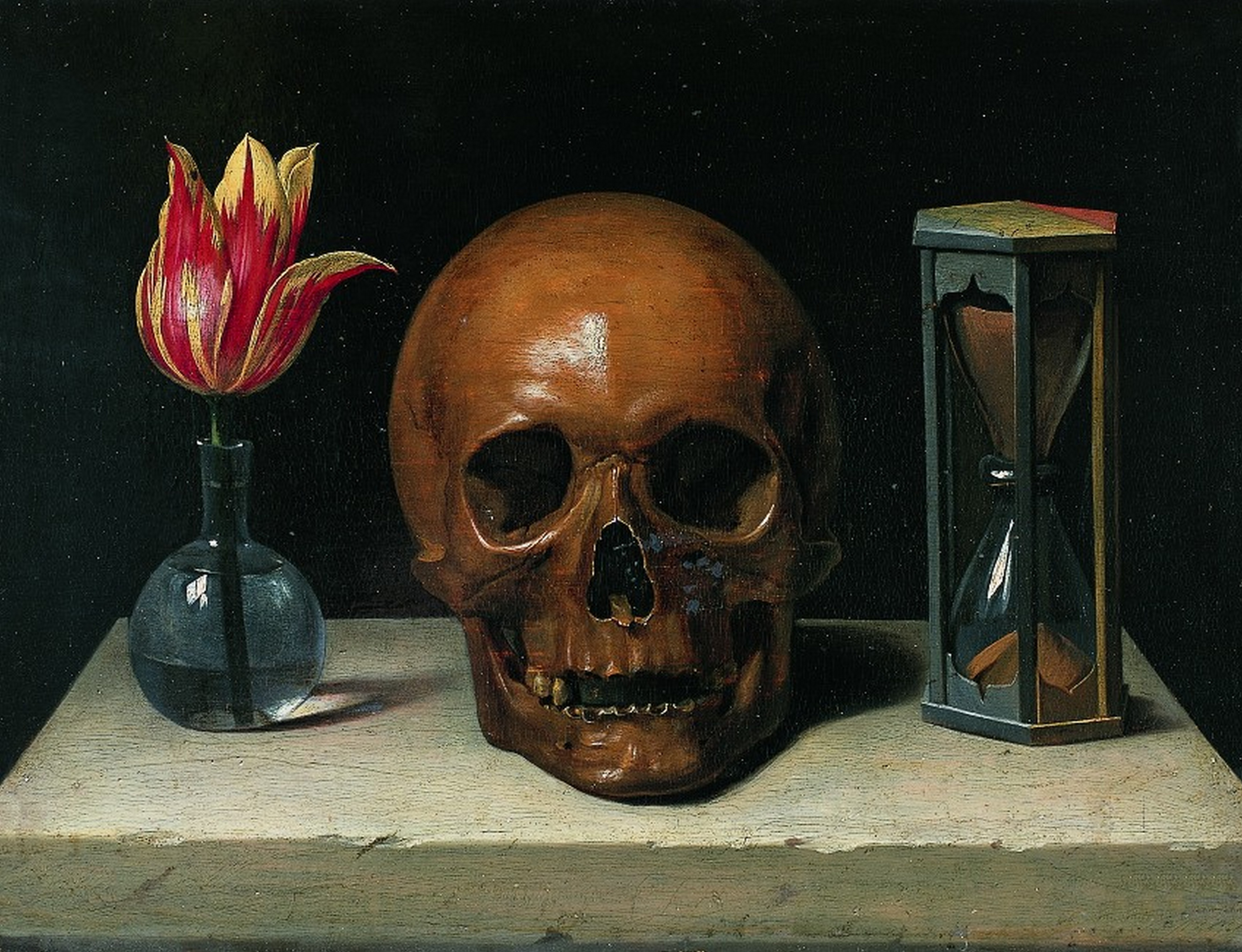
Philippe de Champaigne. Vanitas (c. 1671) Life, Death, and Time.
See memento mori and vanitas.
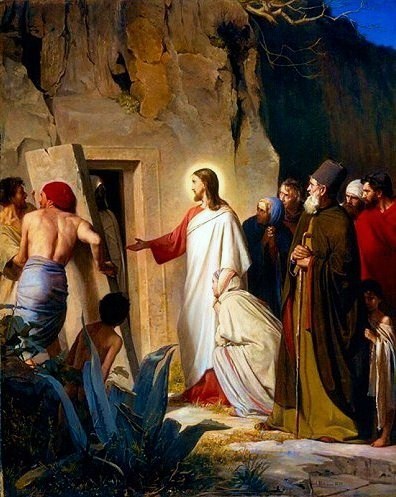
Raising Lazarus, Oil on Copper Plate, 1875, Carl Heinrich Bloch. Via wikimedia.
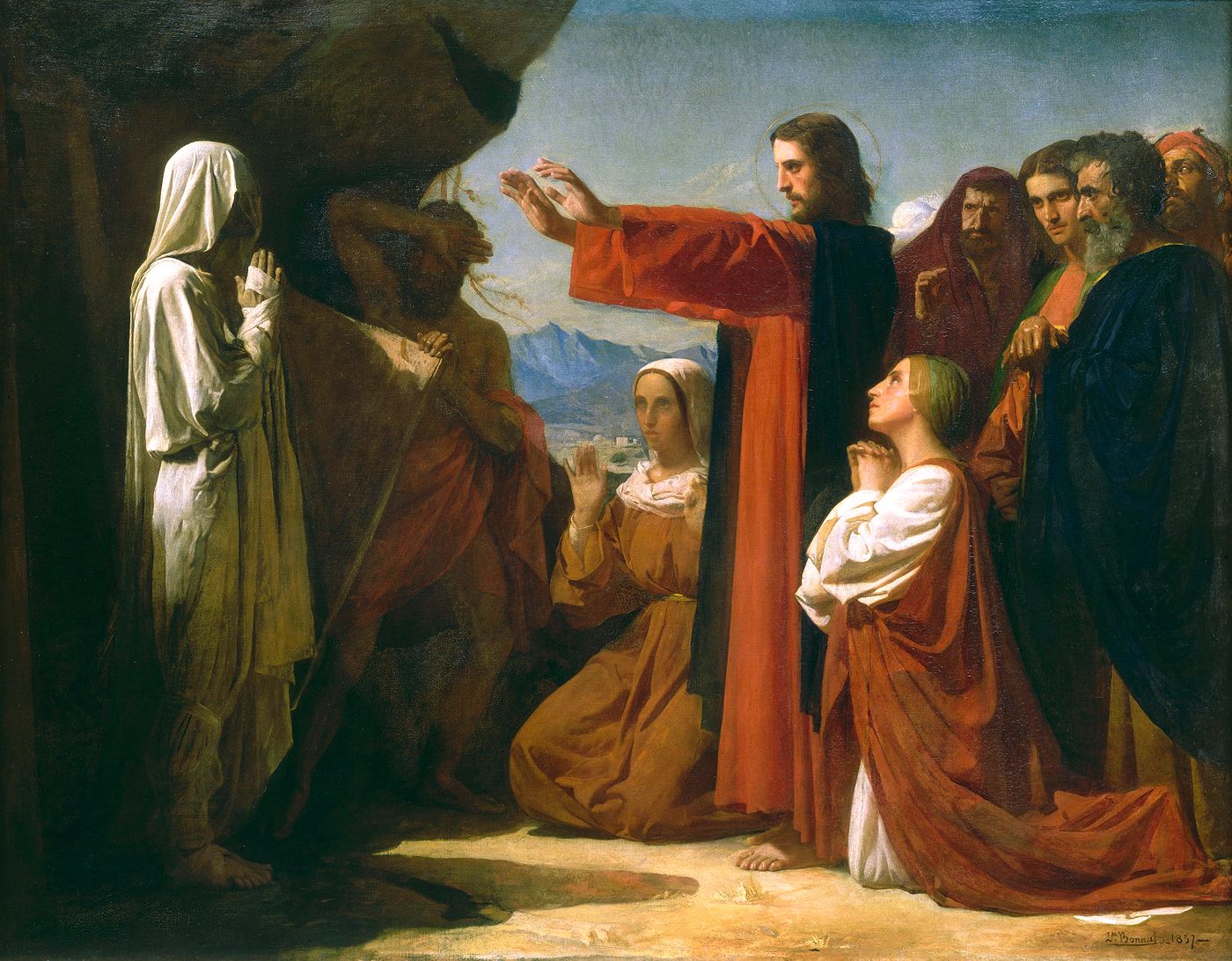
The Raising of Lazarus, 1857, Léon Joseph Florentin Bonnat. Via wikimedia.
See Ecologues of Virgil.
See Erwin Panofsky
See Web Gallery of Art.
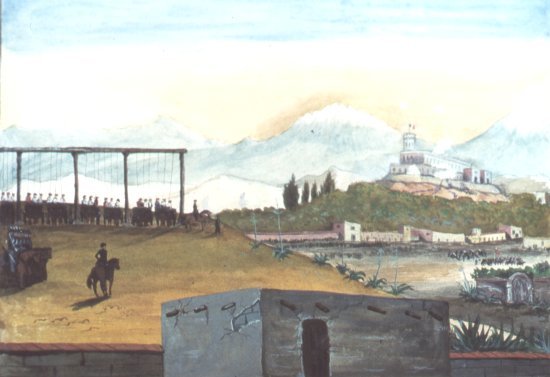
The mass hanging of San Patricios via wikimedia.
Read Samuel Chamberlain‘s My Confession: Recollections of a Rogue.
—–
Et In Arcadia Ego is the name the Judge has given to his rifle in Blood Meridian. In the book, the Judge copies and destroys an ancient rock painting he finds while crossing the desert.
——
On the origin of painting and drawing through shadow. Blog.
——
*the source of the interpretation doesn’t appear in Wikipedia unless it comes from the German book Picasso und die christliche Ikonographie. Mutterbeziehung und künstliches Selbstverständnis (2003) by . (Picasso and the Christian iconography. Mother relationship and artificial self-image).
i just had a dream about your blog.
north africa. first it was a flashback. it’s you and a guide on a dune. you almost step on a nest of snakes while taking a picture. the guide, who is moroccan, attemps to help you, and steps on another nest of snakes. these are not normal snakes… they’re flat snakes with multiple rattle spots along their bodies. he gets bitten several times in slow motion. poor guy. you and the guide jump in the white pickup truck and ride away to a hospital.
as you and the guide drive…
the flashback ends. and i’m in the pickup truck with you, and the guide, who apparently has survived. he’s driving and charges 100 (monetary unit of the country) the hour. we split the cost. i give you a bunch of large reddish bills.
we’re coming back from the same flat rattle snake dunes as the flashback.
we drive by a vast cemetery. dusk approaches. there are immense mausoleums the size of 20-story buildings. some are 30 or 40-story high carved on black marble. others resemble stalinist structures built to honor an eternal dictator. these buildings are besieged by a disorganized sprawl of black pine trees, gravestones, smaller mausoleums, and wooden crosses.
i ask if this is the country’s main cemetery. “yes,” the guide says. he seems annoyed because the snake bites still itch him. now the guide looks like mr. bobby, a motor rickshaw driver who gave me dal recipes in new delhi.
i ask you if this cemetery has been in your blog before.
you say yes. and then it’s another flashback as you explain your blog entry. i come with you into the flashback. it’s dark. we’re walking through poorly lit tunnels inside the necropolis. you take pictures of the signs. they read “no bragging about being alive,” “careful with bio,” “no obscenities to the dead.”
i look at my feet and notice i have no shoes. i say, “i forgot my shoes. let’s go back. i don’t want to get ringworm.”
we head out through a path of red earth in a forest of dark pine trees and elaborate graves. the forest ends on a swamp. we walk into the swamp. we wade, stepping on what seem to be decomposing logs under the water. we’re lost.
we see a tourist van and wave our hands to call attention. it’s driving down a road between the forest and the swamp. it doesn’t stop but the tourists wave us back.
we get on the road and feel silly we didn’t see it before.
at the end of the road we find cheering american backpackers. they are waiting under the grand entrance to the cemetery. it’s dark and lit by a single fluorescent streetlamp.
i try to be funny. i scream “the zombies are coming!”
nobody laughs. i look at you “we just walked through a pond full of rotting corpses and death water.”
i wake up thinking i’m late for work. it’s only 6:27am, korea time. the end.